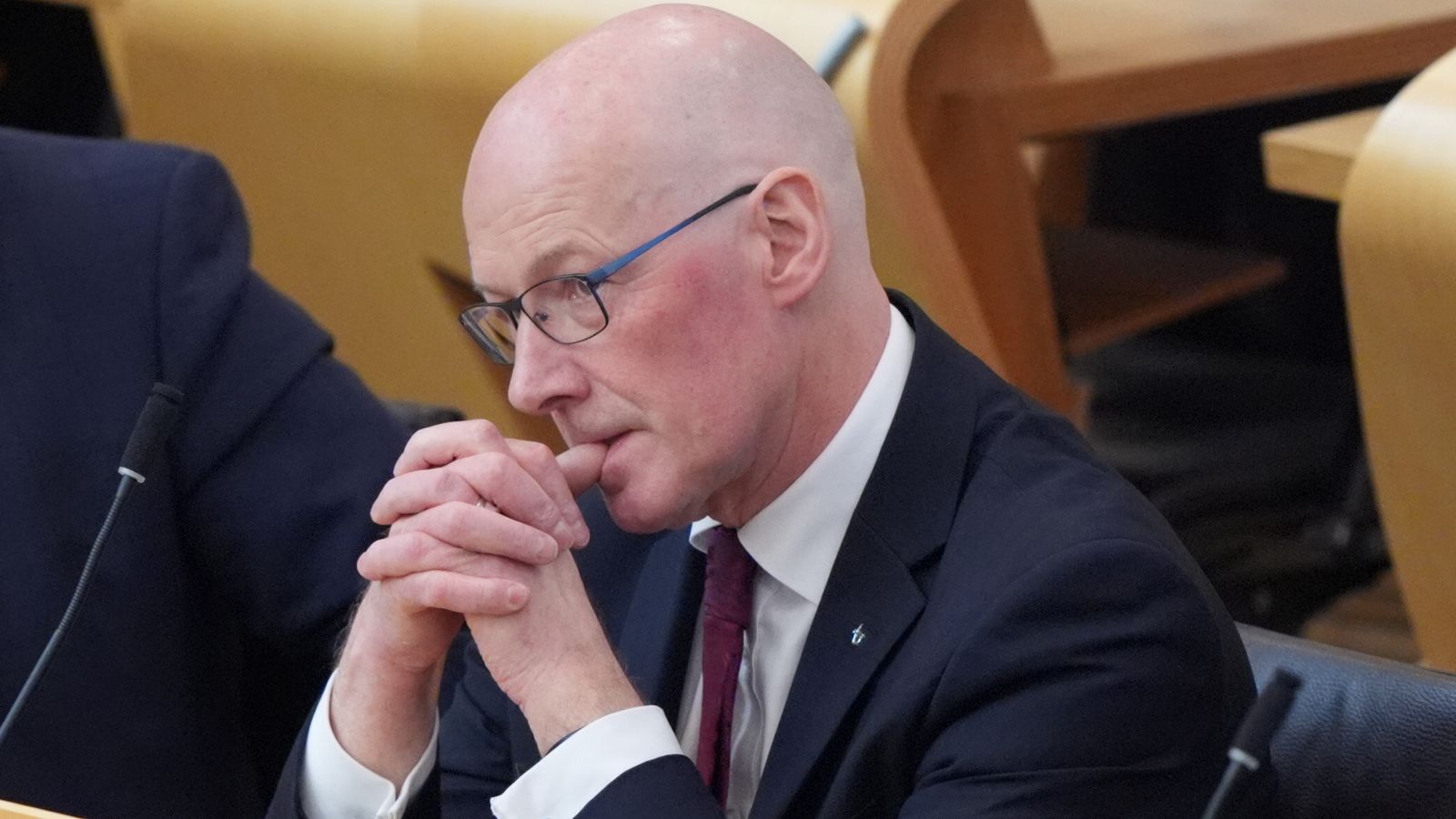John Swinney is the new SNP leader and is now on course to succeed Humza Yousaf as first minister of Scotland.
The former deputy first minister, who served under close ally Nicola Sturgeon, was unopposed in the SNP leadership race following Mr Yousaf’s resignation last week.
Mr Swinney is now on track to become Scotland’s seventh first minister as early as Tuesday.
Politics live: SNP confirms new leader
What happens next?
Having taken over as SNP leader, Mr Swinney will now need to seek parliamentary approval to succeed Mr Yousaf as first minister.
The timing is decided by the parliamentary bureau, and could take place as early as Tuesday.
The parliament will have 28 days to nominate a replacement for Mr Yousaf once his resignation has been accepted by the King.
As the SNP are by far the largest party in Holyrood, the onus is on them to find a new leader who can work with other parties in a minority government.
The SNP’s tally of 63 MSPs leaves them just short of a majority in the 129-member parliament, meaning politicians from other parties will need to be persuaded to either vote for Mr Swinney, or at least abstain in the ballot, for him to be successful.
The leaders from other political parties can also put themselves forward and MSPs can nominate a candidate, although it must be seconded by another member.
If that happens, any candidate that secures more than half of all votes will win the nomination.
If no one reaches that threshold, the candidate with the fewest votes will be eliminated – with the process repeated until the candidates are whittled down to two.
At that point, a candidate will only require a simple majority to win.
Read more:
Who is John Swinney?
Whoever wins the vote is then formally appointed by the King.
An official swearing-in ceremony at the Court of Session in Edinburgh will then take place.
👉 Listen above then tap here to follow the Sky News Daily wherever you get your podcasts 👈
However, if no new first minister can be selected within the 28 days, the Scottish parliament will be forced to hold an extraordinary general election.






![Scream 7 Trailers Are Making Me Think [SPOILER] Has To Be The Killer Scream 7 Trailers Are Making Me Think [SPOILER] Has To Be The Killer](https://cdn.mos.cms.futurecdn.net/SB3efVqBwkiQ9NbuDBsTq8-1280-80.jpg)

